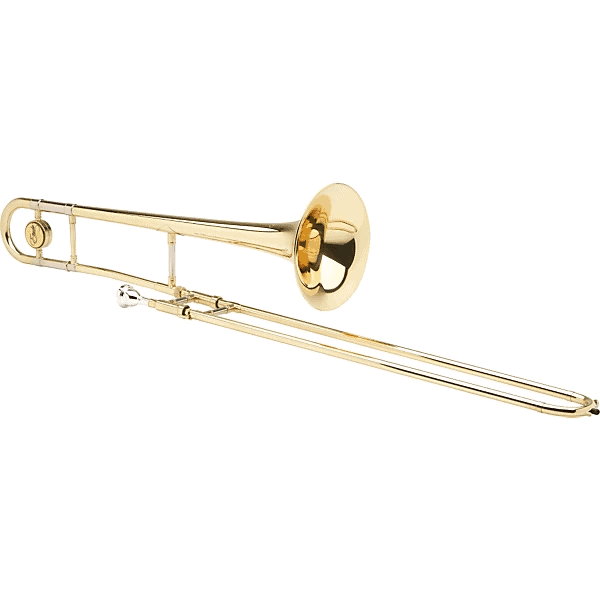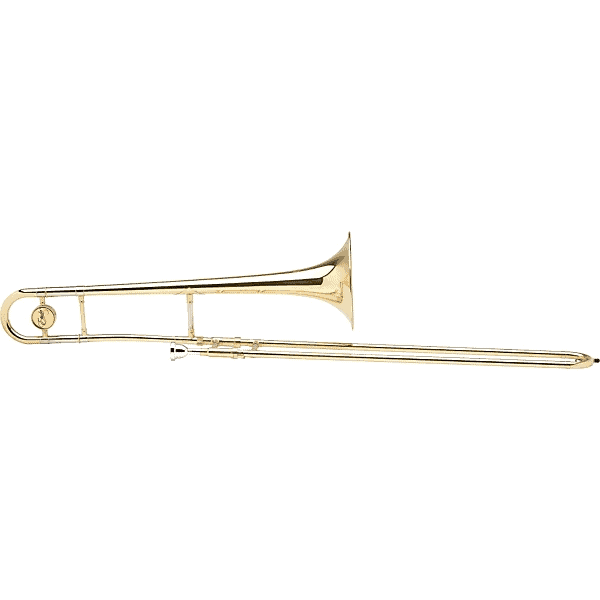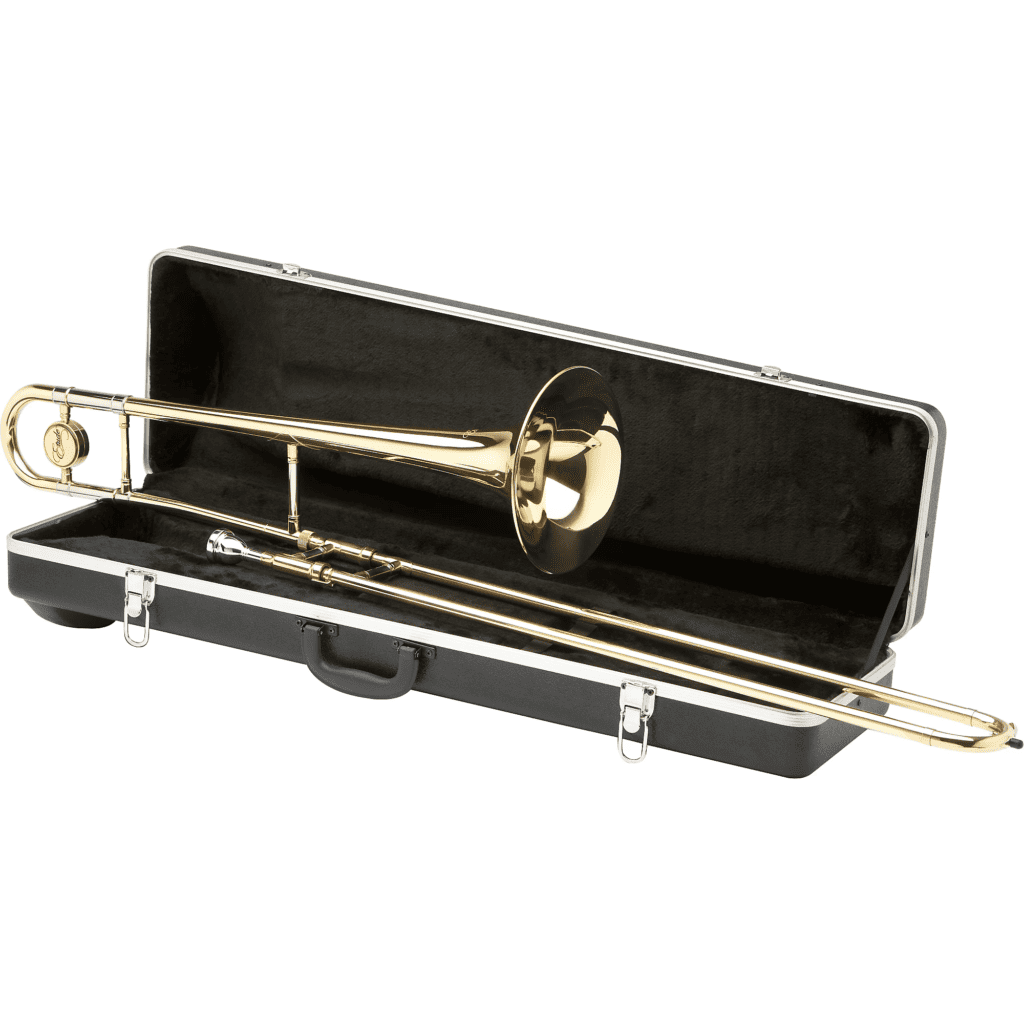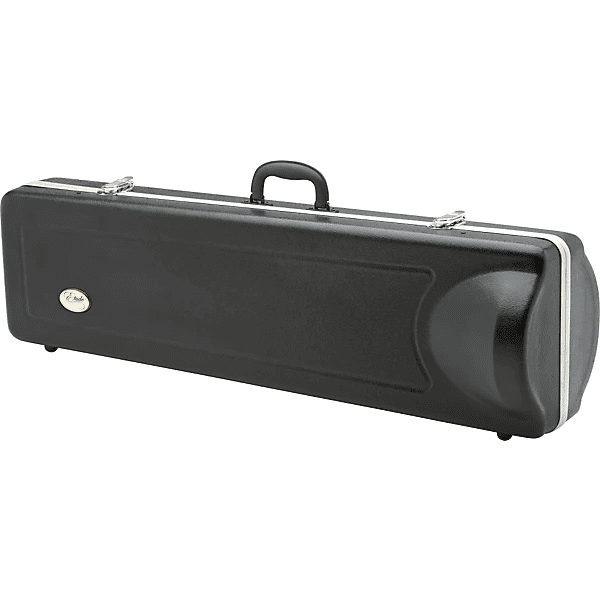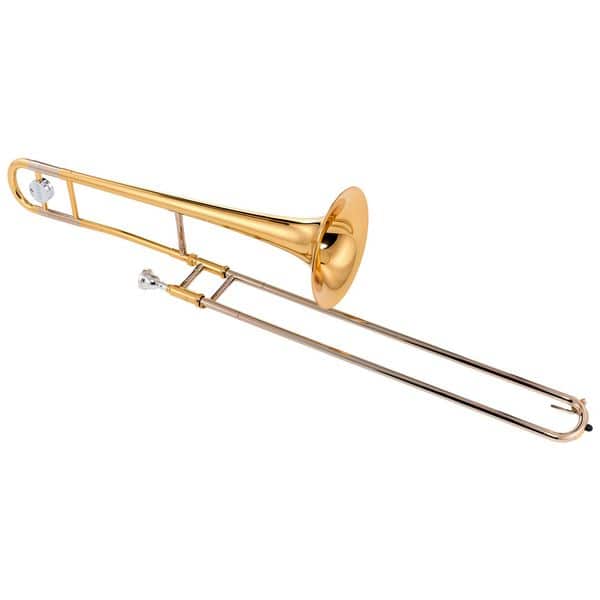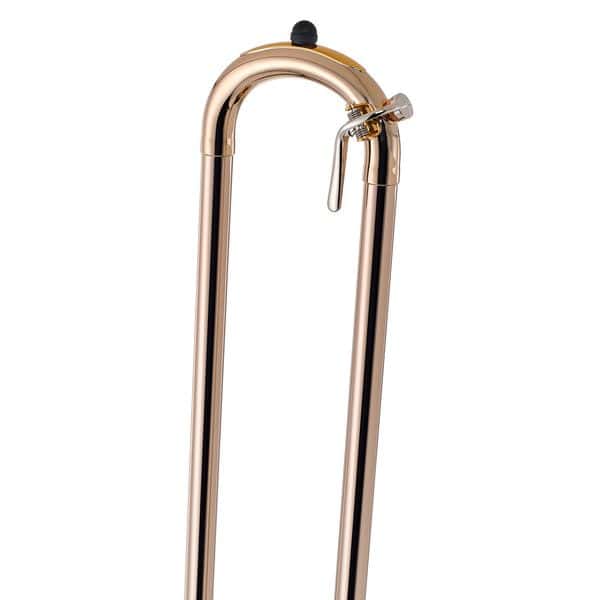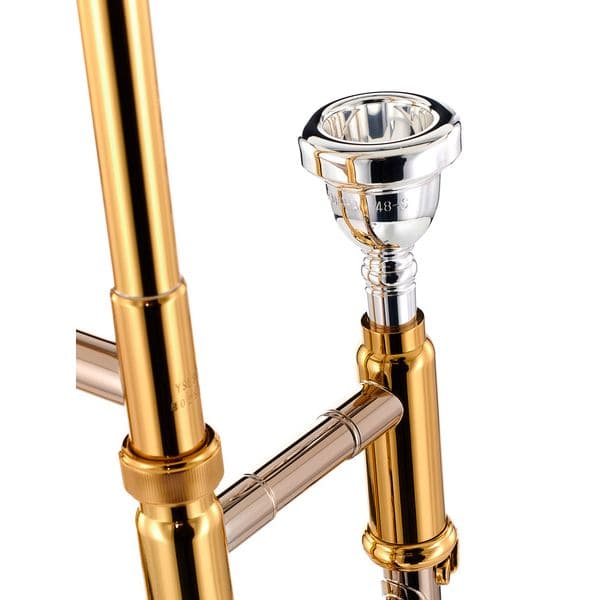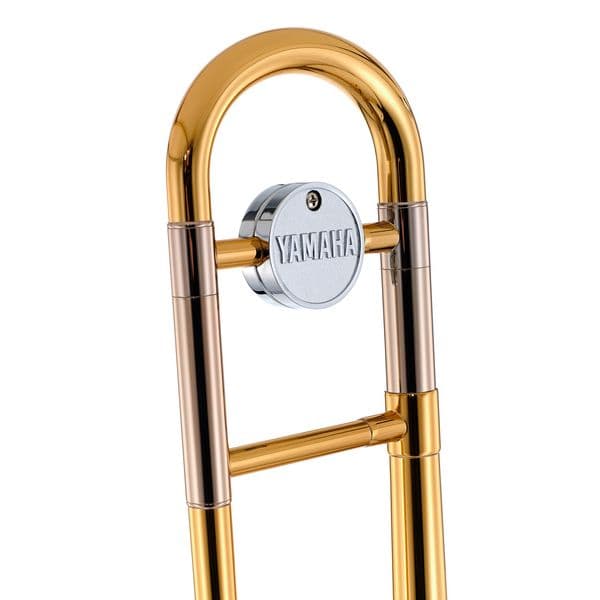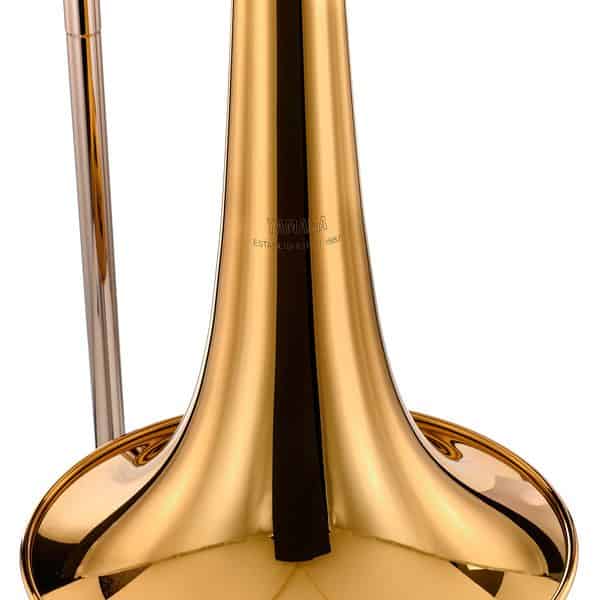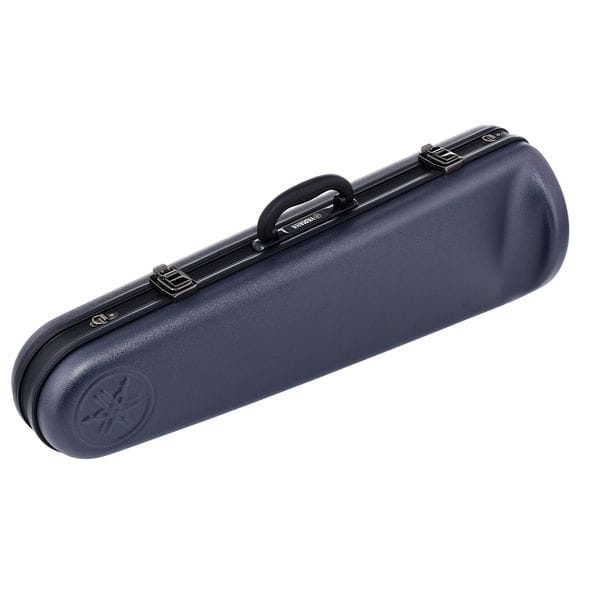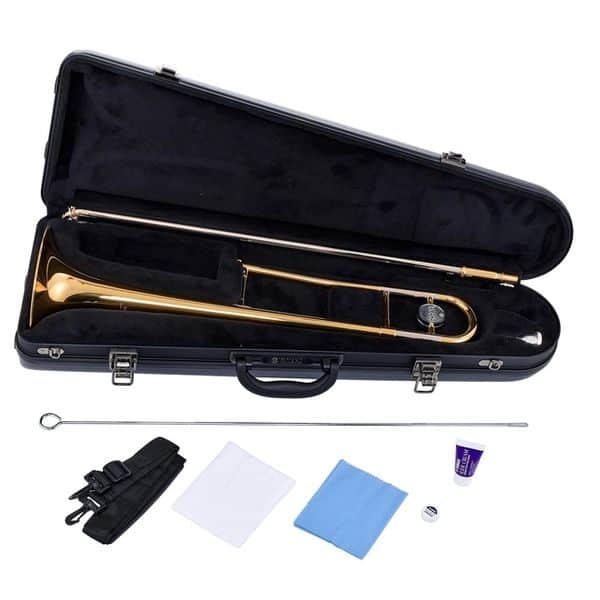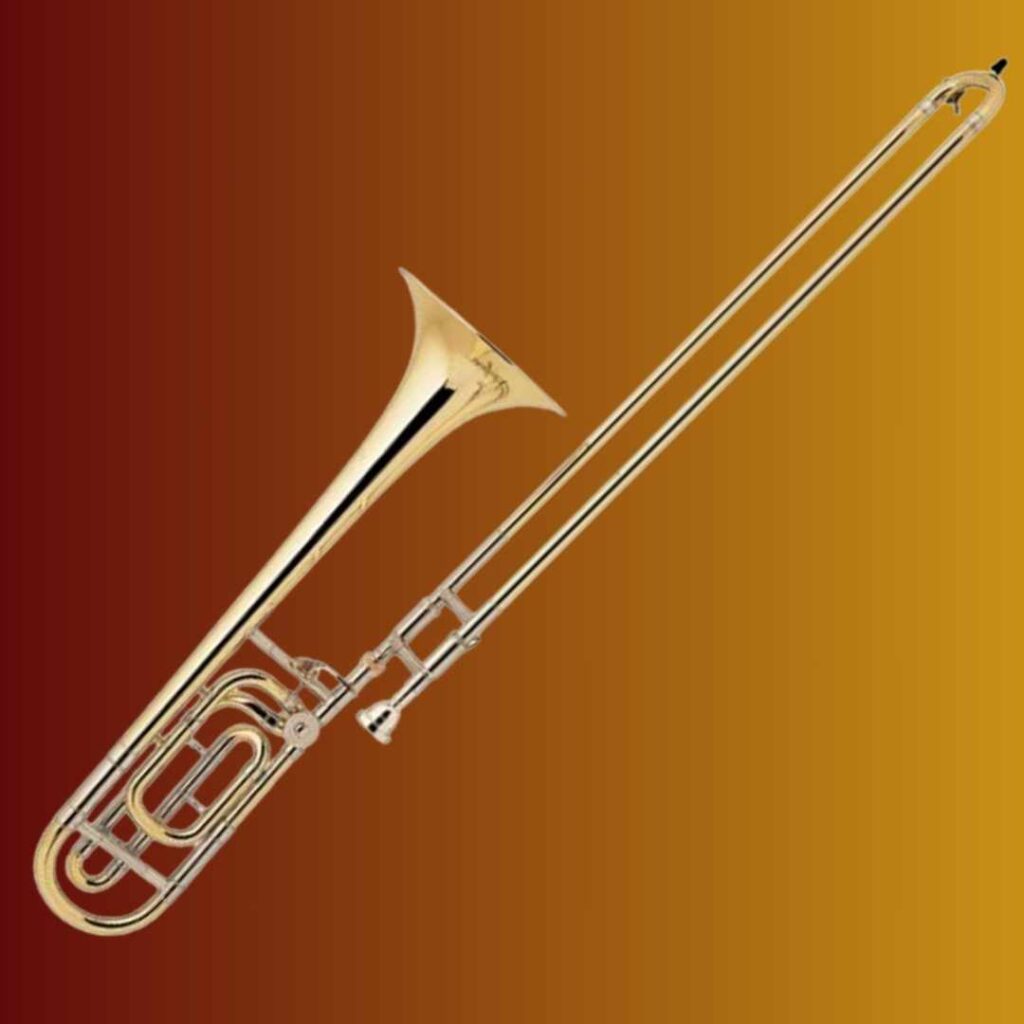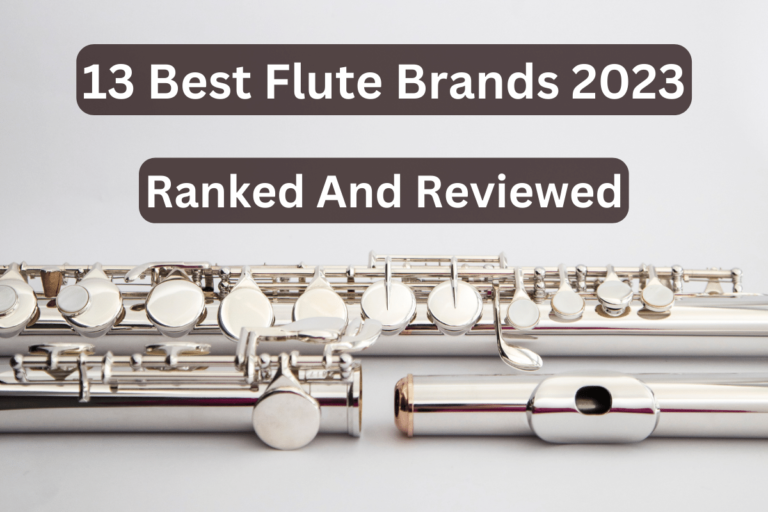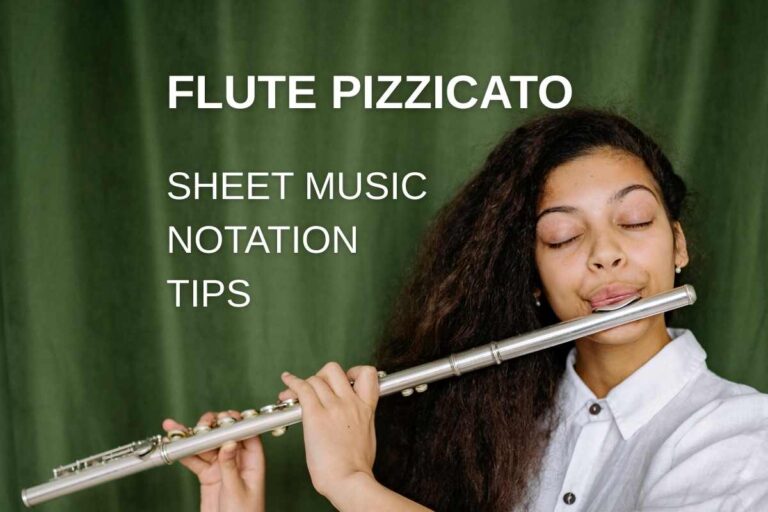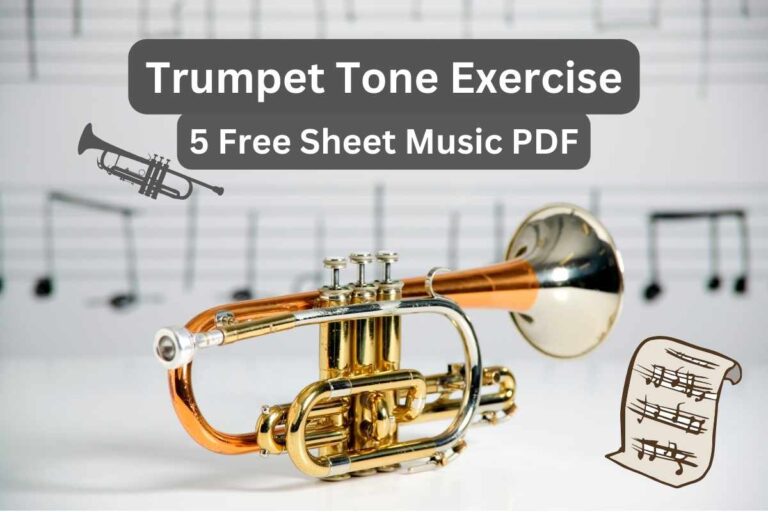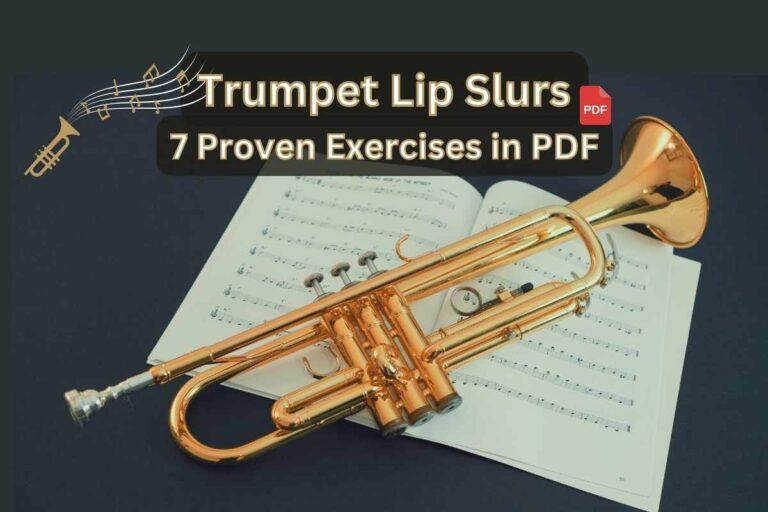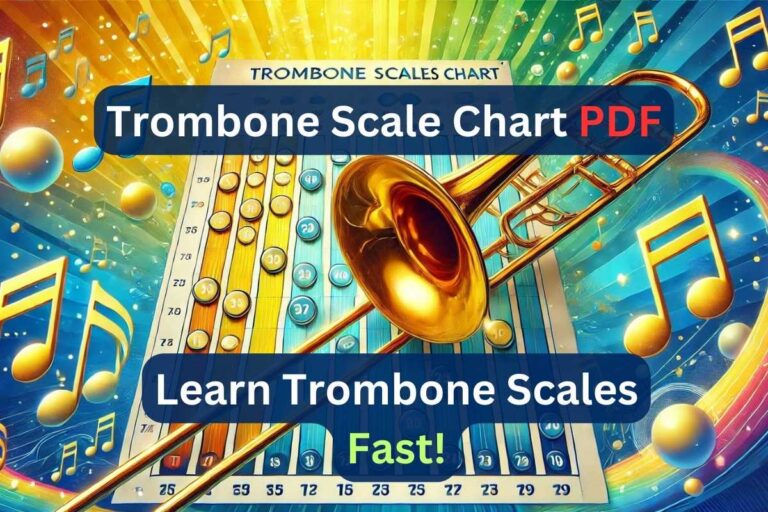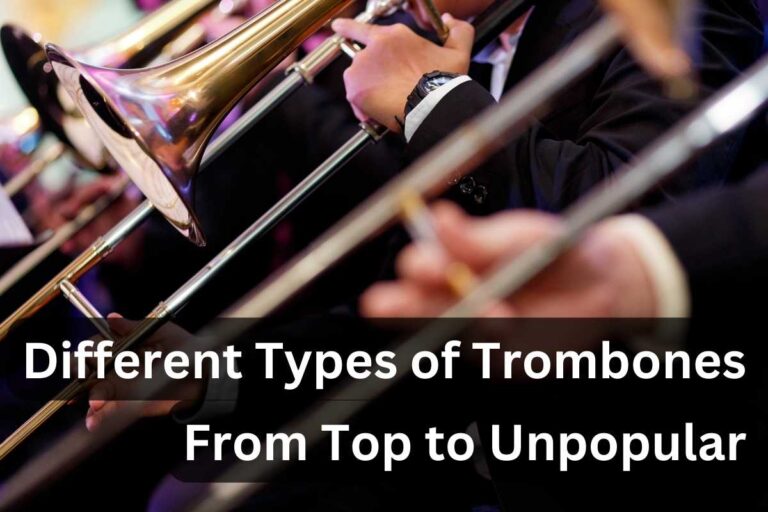Best Trombone Price Guide: How Much Does A Trombone Cost 2025?
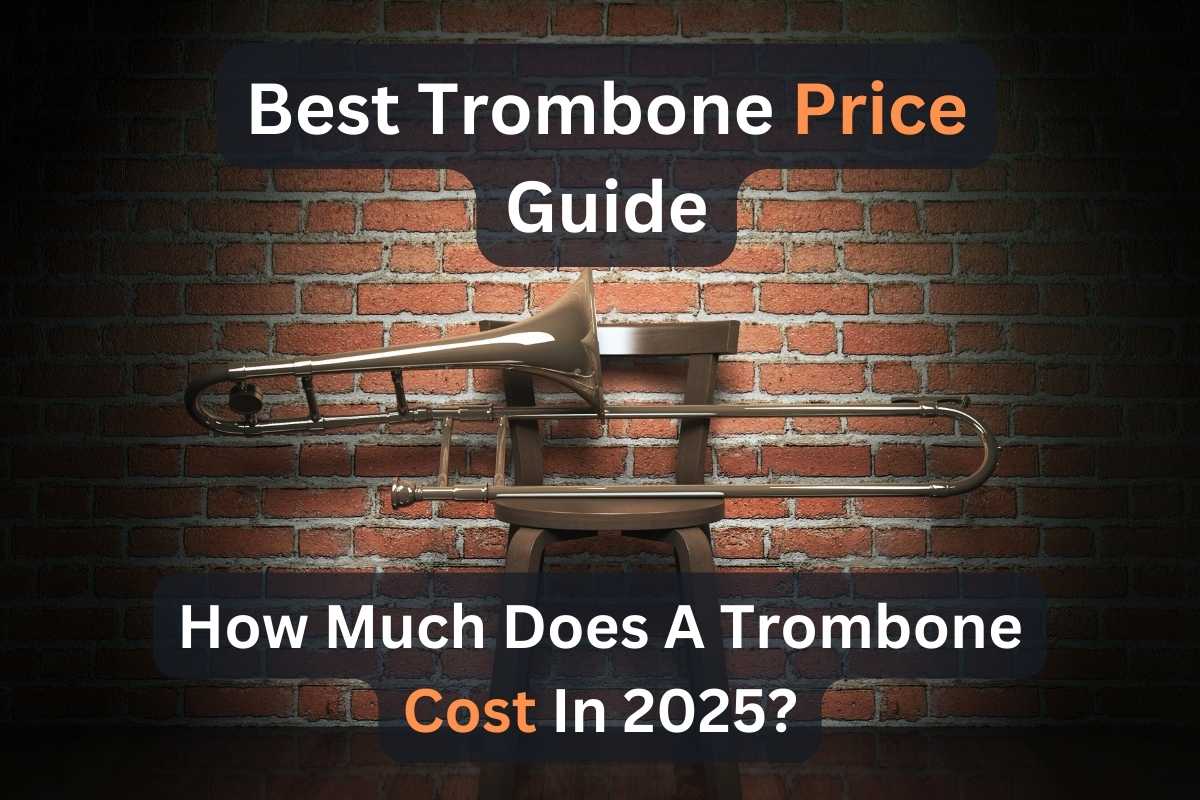
Thinking about snagging a new horn but not sure how much to shell out? You’re in the right place. As a former music store owner with 15+ years of experience (and many pro musicians clients and friends), I’m here to break down trombone prices for ya!
Why should you keep reading? Well, trombones cost anywhere from under $500 to over $5000+ — that’s a huge range!! I’ll help you figure out what you’re really getting at each price point so you DON’T end up with buyer’s remorse (or an angry spouse).
Trust me, I’ve seen it all — from students starting on rusty yard sale finds to pros dropping serious cash on custom horns. By the end of this article, you’ll know exactly what to look for in your price range — Let’s dive in!!
What Are Trombone Price Levels?
Alright, let’s break this down into bite-sized chunks. When it comes to trombones, there are basically five price tiers
1. Less popular and second-hand student horns under $500
2. Beginner-friendly models from $500 to $1500
3. Intermediate trombones from $1500 to $3000
4. Pro tier $3000 — $5000
5. Custom (Luxury) — $5000+ (up $20k!)
Now, generally speaking, you get what you pay for. But (and it’s a big but), there are always exceptions. I’ve played some KILLER budget horns and some disappointing expensive ones. Let’s dig into each category.
Less Than $500 — Second-Hand and Not Popular Brand Student Horns
These are your bare-bones, “get-your-feet-wet” trombones. Think of them as the Honda Civics of the brass instruments world — they’ll get you from point A to point B — but don’t expect luxury features
< $500
Pros
- Cheap as chips (perfect for testing the waters)
- Usually pretty durable (they can take a beating)
Cons
- May have intonation issues (hitting those high notes can be… interesting)
- Limited longevity (you’ll probably outgrow it quickly if you stick with it)
Example Models: Etude ETB-100 | Stagg WS-TB225 | Used Yamaha, Conn, or Olds Ambassador
Etude ETB-100
- 1-year warranty
- Key: Bb
- Yellow brass 8″ bell
- Medium bore .495″
- Thermoplastic case included
- Small shank 12C mouthpiece
Etude ETB-100 Tenor Trombone
[Personal anecdote: My friend, a brass teacher, once had a student show up with a trombone he bought at a garage sale for $50. It was dented, the slide was sticky, and it smelled like old cheese. But you know what? That kid practiced his butt off and ended up first chair in the school band. Sometimes it’s not about the horn, it’s about the player.]
From $500 To $1500 — New Student Trombones
Now we’re talking! These are solid starter horns that won’t make you want to quit after a month
$500 — $1500
Features
- Better materials (no more “mystery” metal alloys)
- More durable (can survive a FEW accidental drops)
Benefits
- Great for advancing students
- Better resale value (when you’re ready to upgrade)
- Improved intonation (fewer sour notes)
Example Models: Yamaha YSL-354 | Jupiter JTB1150FO | King 606
[In my experience, these are the “sweet spots” for most beginners. I’ve recommended the Yamaha YSL-354 to countless customers and students, and it’s never let us down, a real champion. It’s like the Swiss Army knife of trombones – reliable, gets the job done, and won’t break the bank.]
Yamaha YSL-354
- Medium-large bore (.525″)
- Yellow brass bell
- Nickel-plated inner slide
- 5-year limited warranty
- Case included
Yamaha YSL-354 Tenor Trombone
From $1500 To $3000 — Intermediate / Semi-Pro Level Trombones
This is where things start getting serious. These horns are for players who’ve caught the trombone bug and aren’t looking back!!
$1500 — $3000
Upgrades
- Higher-quality brass (better resonance and tone)
- Smoother slides (no more wrestling with stuck positions)
- More responsive (easier to hit those tricky notes)
Suitability
- Serious students (like college)
- Semi-professionals
- Adult learners who want a horn that’ll grow with them
Example Models: Bach 42 | Conn 88HO | Getzen 1047F
[Success story time: I had a customer, let’s call him Mark, who started on a basic student model. When he upgraded to a Bach 42, it was like watching a butterfly emerge from its cocoon. His tone improved overnight, and he ended up getting a music scholarship to college (tho he had won multiple competitions prior). Sometimes, the right musical instrument makes all the difference.]
Bach 42
- Medium-large bore (.547″)
- 8,5″ one-piece hand-hammered bell
- Clear lacquer finish
- Traditional F wrap rotor
Bach Stradivarius 42 Tenor Trombone
From $3000 To $5000 — High-End Professional Trombones
Welcome to the big leagues. These are the horns you’ll see in professional orchestras (bigger bore) and top-tier jazz bands (smaller bore)
$3000 — $5000
Premium features
- Hand-hammered bells (for that rich, complex tone)
- Precise intonation (hit those notes “dead-on”, every time!)
- Superior craftsmanship (these horns are built to last)
Why professionals invest
- Consistency (no surprises during performances)
- Tone quality (that warm, buttery sound we all crave)
- Longevity (these horns can last a lifetime with proper care)
Example Models: Edwards T350-E | Shires Q Series | Yamaha Xeno YSL-882O
[I’ve been lucky enough to listen (and sell) on a few of these beauties over the years. My personal favorite is the Yamaha Xeno horns. It’s like driving a Ferrari — responsive, powerful, and just a joy to play. But fair warning: once you try a pro horn, it’s HARD to go back!]
More Than $5000 — Top-Tier Custom (Luxury) Trombones
This is the trombone equivalent of a tailored suit. Every aspect is customized to the player’s preferences
> $5000
Unique characteristics
- Fully customizable (from the bell flare to the slide thickness)
- Highest-quality materials (think gold-plated finishes and exotic metal alloys)
- Handcrafted by master artisans (these aren’t mass-produced)
Who should consider:
- Professional soloists
- Orchestral players
- Those with very specific playing needs (or VERY deep pockets)
Example Models: Thein Custom | Rath Custom | Shires Custom
[I once had the chance to listen to (mostly selling) a Shires custom trombone at a trade show. It was like the horn was blowing our minds – every note just flowed magically. Of course, the price tag makes any wallet cry, but for some players — it’s worth every penny!!]
5 Trombone Price Ranges
| Price range | Category | Features | Example models |
| Under $500 | Not common Brand or Used Student |
- Basic construction - Suitable for beginners - May have intonation issues - Limited longevity |
- Etude ETB-100 - Stagg WS-TB225 - Used Yamaha, Conn, or Olds Ambassador |
| $500-$1500 | Beginner (Student) |
- Better materials - Improved intonation - More durable - Suitable for advancing students |
- Yamaha YSL-354 - Jupiter JTB1150FO - King 606 |
| $1500-$3000 | Intermediate (Semi-Pro) |
- Higher-quality brass - Better slides - More responsive - Suitable for serious students and semi-pros |
- Bach 42 - Conn 88HO - Getzen 1047F |
| $3000-$5000 | Professional |
- Hand-hammered bells - Precise intonation - Superior craftsmanship - Consistency and tone quality |
- Edwards T350-E - Shires Q Series - Yamaha Xeno YSL-882O |
| $5000+ | Custom and Luxury |
- Fully customizable - Highest-quality materials - Handcrafted by master artisans - For professional soloists and orchestral players |
- Thein Custom - Rath Custom - Shires Custom |
What Factors Influence the Cost of a Trombone?
Alright, let’s break down why some trombones cost as much as a used car:
1. Quality of Materials Used
– Better brass = better sound (and higher price)
– Gold-plated finishes aren’t just for show (they can affect tone)
2. Brand Reputation
– You’re paying for years of R&D and quality control
– Some brands (like Bach and Conn) have cult-like followings
3. Types of Trombones (Read about other ‘’13 Different Types Of Trombones”)
– Bass trombones generally cost more than tenors (same for alto)
– F attachment (F trigger)? That’ll cost ya extra
4. Manufacturing Process
– Hand-crafted = higher cost (but often better quality)
– Mass-produced = cheaper (but less unique)
5. Supply and Demand
– Limited edition models can command premium prices
– Popular student models might have better deals due to bulk production
For example, a hand-hammered bell on a professional trombone can add $500+ to the price. Is it worth it? For a pro, absolutely! For a beginner? Probably not. (Read more about how custom shapes affect bell sounds in this Yamaha guide)
Comparing Student and Intermediate Types Of Trombones: Price vs. Value
Let’s break it down in a handy-dandy table:
Trombone Price vs. Value
| Feature | Student ($500-$1500) | Intermediate ($1500-$3000) |
| Material | Yellow brass | Rose brass or nickel silver |
| Slide | Standard | Enhanced (smoother action) |
| Bell | Machine-made | Hand-hammered (some models) |
| F-Attachment | Rarely included | Often included |
| Longevity | 3-5 years | 10+ years |
Long-term value: Investing in an intermediate horn can save you money in the long run. You won’t outgrow it as quickly, and it’ll hold its value better if you decide to sell.
[In my opinion, if you’re serious about playing, save up for an intermediate horn. It’s like buying a good pair of shoes — spend a little more upfront, and your feet (or in this case, your chops) will thank you later.]
Beyond the Brand: What Really Determines Trombone Pricing?
Let’s get nerdy for a sec
1. Alloy composition — The exact mix of copper, zinc, and other metals affects tone and price.
2. Bell thickness — Thinner bells vibrate more freely (but are more expensive to produce).
3. Slide construction — Nickel-silver inner slides are pricier but more durable. (Read my other post to learn “Full Trombone Anatomy And Parts”)
4. Valve quality — Better valves = smoother transitions (and higher cost).
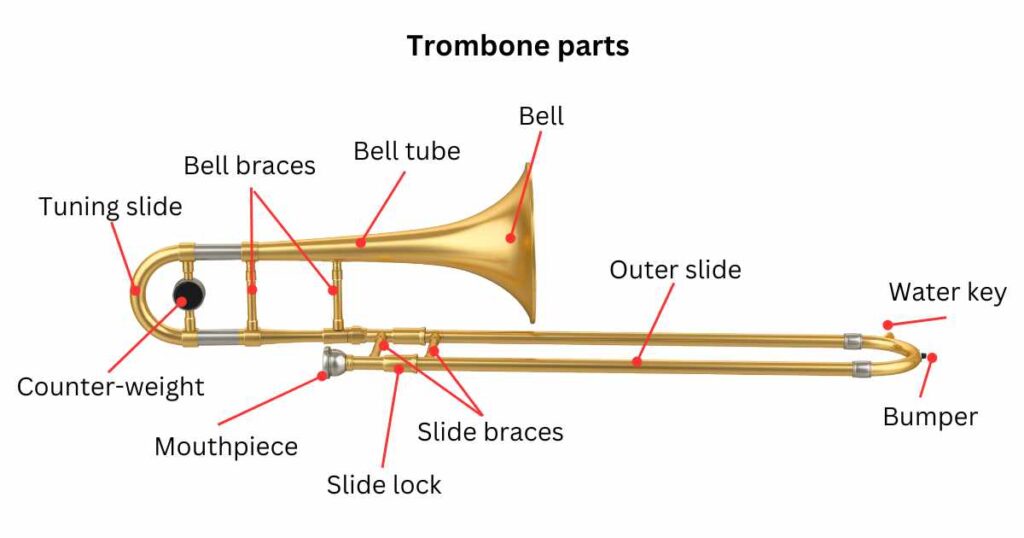
[Don’t get too caught up in marketing hype. I’ve known $5000 horns that didn’t sound much better than $2000 — trust your ears, NOT the price tag.]
Finding Affordable Quality — Budget-Friendly Instrument Options
Tips for snagging deals:
1. Shop end-of-year sales (music stores often clear out inventory)
2. Look for demo models (lightly used but big discounts)
3. Consider renting (great way to try before you buy)
[Pro tip: I always recommend checking out university music department sales. You can find great deals on horns that were barely used by graduating students.]
The Second-Hand Market: Pros and Cons of Buying Used Trombones
Second-Hand Market
Pros
- Major savings (sometimes 50% off retail)
- Access to discontinued models
- Already broken in (no new horn “stiffness”)
Cons
- Risk of hidden damage
- Outdated designs (in some cases)
- Less warranty protection
Used Trombone Checklist:
1. Check for dents (especially in the slide)
2. Test all positions (should move smoothly)
3. Look for red rot (a type of corrosion)
4. Play test if possible (or bring a trusted player)
[My friend once scored a beautiful vintage Conn 88H for his student at half the price of a new one. It needed a little TLC, but it ended up being a fantastic horn.]
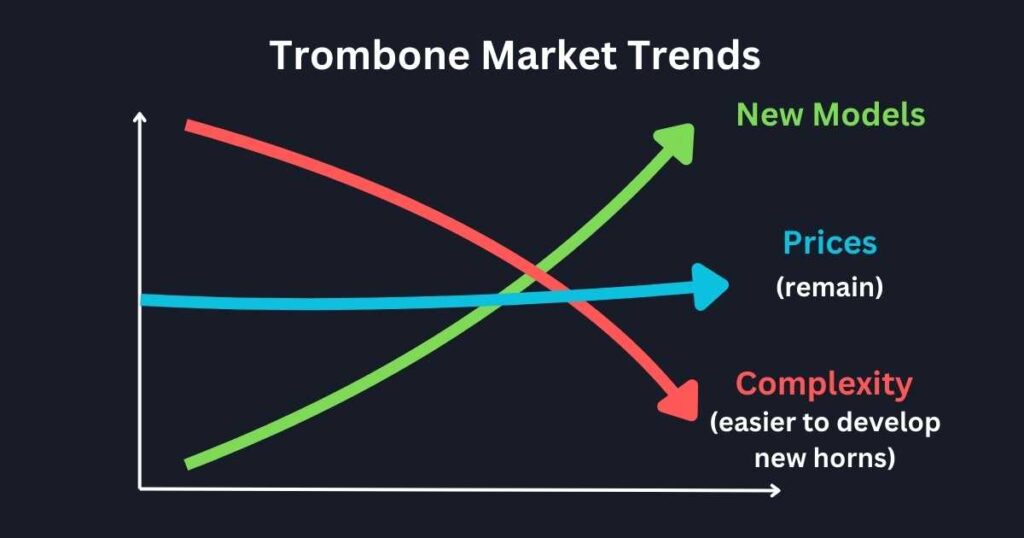
Trombone Price Trends: What to Expect in the Future
Based on what I’m seeing in the industry
– Prices will likely continue to rise (inflation, y’all)
– More “hybrid” models bridging student and intermediate categories
– Increased use of 3D printing for custom parts (potentially lowering some costs)
My prediction: We’ll see more affordable trombones with professional-level features in the next few years. The gap between intermediate and pro models is already shrinking. (Read more about North American potential demand growth for instruments in “Future Insights”)
FAQ: Common Questions About Trombone Pricing
Q: How often should I upgrade my trombone?
A: It depends on your progress, but typically every 3-5 years for serious students.
Q: Are more expensive trombones always better?
A: Not always. A $3000 horn WON’T magically make you sound like a pro.
Q: Can I rent a trombone instead of buying?
A: Absolutely! It’s a great way to try different models without committing.
Q: How do online prices compare to in-store prices?
A: Online is often cheaper, but you miss out on the chance to play test. (Sweetwater is my absolute on-line fav)
Conclusion: How Much Does A Trombone Really Cost?
Whew, we covered a lot of ground! Here’s the TL;DR:
– Trombone prices range from under $500 to $5000+
– Higher prices usually (but not always) mean better quality
– Consider your long-term goals when choosing a horn
– Don’t be afraid to try used or rental options
Remember, the most expensive trombone in the world won’t sound good if you don’t practice. (Trust me, I’ve seen it happen!)
My final advice? Always, always, ALWAYS play test before you buy (if possible). And if you’re still unsure, find a good trombone teacher in your area. They love talking about this stuff (maybe a little too much…).
Now get out there and make some noise! 🎵🎺 (Ready to start learning? Read my post with “Trombone First steps — Learn Trombone Slide Chart”)

